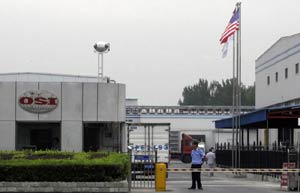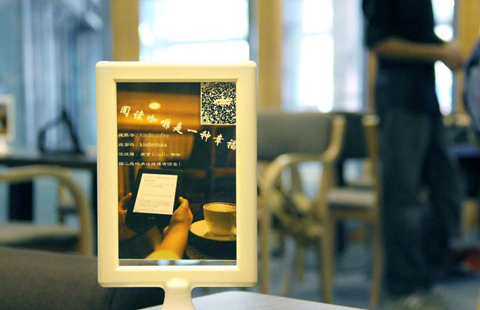OSI hires manager from US for meat plant
By Wang Zhuoqiong (China Daily) Updated: 2014-09-03 07:24Move follows scandal at Shanghai facility, which sold expired products
OSI Group LLC has retained a unit of California-based Golden State Foods Corp to manage one of its plants in China as it attempts to recover from a scandal involving sales of expired meat by a facility in Shanghai.
OSI group said in an online statement on Monday that it had reached a management services agreement with KanPak China, a subsidiary of GSF.
Under the single-facility agreement, KanPak will manage OSI's facility in Guangzhou, capital of Guangdong, which produces vegetable and fruit products.
 |
"The move has shown that OSI is seriously making a change," said Ben Cavender, a researcher at China Market Research Group.
Hiring a third party to manage the plant instead of doing that itself means the company wants to make its claim to care about quality "more credible", said Cavender.
"It helps to involve another company in the operations to avoid future problems," he said. But whether a third party will be a problem-solver is questionable, Cavender said.
It is a challenge for OSI to rebound from accusations that the company's Shanghai Husi Food Co sold expired meat to fast-food restaurants owned by McDonald's Corp and Yum Brands Inc.
The claims were reported in July by Chinese State media.
The Chinese authorities conducted an investigation into OSI in late July. Prosecutors arrested six Shanghai Husi employees last Friday.
"OSI really hurt itself," said Cavender. "Retailers and restaurants care about their brand images and want no trouble with the government. They don't want to be attached to a company with bad press. It will take a long time for OSI to recover its brand image. It is going to be spending money for a long time."
Many of OSI's customers in the country suspended their relationship with the company as their businesses were hit hard by wary consumers, and many have been short of supplies for weeks.
McDonald's was the most affected, with a three-week shortage of meat at its outlets in the Chinese mainland, Hong Kong and Japan.
As a consequence, results in China, Japan and certain other markets experienced "a significant negative impact", the company has said. The affected markets represent about 10 percent of its global sales, according to McDonald's.
Yum, which has more stores in China than McDonald's, on July 30 warned that the incident had hurt sales badly at its KFC and Pizza Hut restaurants over the previous 10 days.
- Baidu boosts location-based platform with new services
- Meizu debut its latest smartphone MX4
- US sets preliminary dumping rates on China's steel wire rod
- Promotion of e-cigarettes should stop
- China to mass produce industrial robots
- Has the tide turned for Chinese stocks?
- East China province announces child product recall
- Aston Martin hires senior Nissan exec as chief executive


















